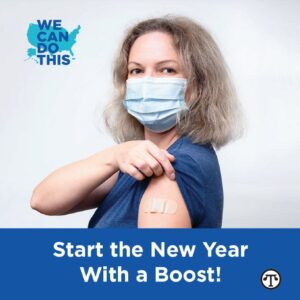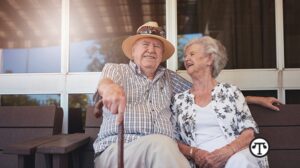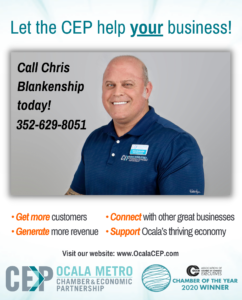Health, Home & Family
 Strawberries stuffed with lightly-sweetened cream cheese and walnuts are perfect for that romantic evening. They go great with champagne! Pecans also work well in this recipe.
Strawberries stuffed with lightly-sweetened cream cheese and walnuts are perfect for that romantic evening. They go great with champagne! Pecans also work well in this recipe.
- 20 fresh strawberries
- 1 (3 ounce) package cream cheese, softened
- 2 tablespoons chopped walnuts
- 1 ½ tablespoons confectioners’ sugar
Dice two strawberries and set aside. Cut the stems off of each of the remaining strawberries, forming a base for strawberries to stand on. Starting at the pointed ends and cutting most of the way, but not completely through the stem end, slice each strawberry into four wedges.
Beat the cream cheese until fluffy; stir in the diced strawberries, walnuts, and powdered sugar. Spoon or pipe about a teaspoon of mix into each strawberry.
More recipes at www.allrecipes.com
COVID-19 Public Education Campaign
(NAPSI)—January is a month when people make New Year’s resolutions that often include pledges to take steps for better health. With new variants of COVID-19 moving rapidly throughout the world, 2022 resolutions that involve COVID vaccines and boosters can go a long way toward making the new year healthy for everyone. And it can be an easy resolution to keep.
“Vaccines are wonders of medicine that have prevented suffering and death from deadly diseases such as smallpox, polio, and diphtheria,” said Dr. Danielle Zerr, pediatric infectious disease specialist at Seattle Children’s Hospital. “When thinking about how to be healthy in 2022, COVID-19 vaccines and boosters should be high on the list of important and simple steps to good health.” Continue reading
(NAPSI)—Every year more than 5 million homes change hands in America, almost 35,000 of those are in Broward County. For most people, that can be pretty daunting—but it doesn’t have to be.
The Problem
Selling a home is often cited as one of the most emotionally difficult life events. In fact, 77% of respondents told pollsters at 1000watt they might be willing to take 5 to10% less for their home to avoid the hassle. Continue reading
 (NAPSI)—With each generation’s expected retirement time growing longer and longer, you may need to plan for 20 to 30 years of life after you stop working. And when it comes to ways to save for the future, many Americans think first of the 401(k), the most popular and well-known retirement savings option.
(NAPSI)—With each generation’s expected retirement time growing longer and longer, you may need to plan for 20 to 30 years of life after you stop working. And when it comes to ways to save for the future, many Americans think first of the 401(k), the most popular and well-known retirement savings option.
Saving for Your Health
Lesser known—and understood—is another way to save for your future: the Health Savings Account (HSA). With rising healthcare costs that can exceed $10,000 annually during the retirement years, HSAs are gaining more recognition as a smart way to complement 401(k)s and other retirement savings options by helping you plan and save for healthcare costs encountered now and in the future. Continue reading
(NAPSI)—I remember one specific day in first grade like it was yesterday. It was the day when my teacher saw me hesitate as I started to read aloud to the class. “You can do it,” she told me, as I slowly started speaking. Lo and behold, she was right. I could do it! Her nudge of inspiration changed my life.
Reading isn’t every kid’s passion—some prefer physical science, videography, foreign languages, or global affairs. Whatever their passion may be, a caring teacher and the right learning fit can help children discover their interests and their talents.
That’s what school choice, and National School Choice Week (Jan. 23-29), is about: Championing how wonderful it is that kids have different talents and celebrating the different learning environments that inspire them. Continue reading
(NAPSI)—In the midst of a pandemic, family drama and the passing of Prince Phillip, the Duke and Duchess of Cambridge were shining examples of grace and optimism over the last couple of years. Picking up the pace of their Royal engagements, the couple has provided a glimpse into what the Monarchy might look like in the future.
In 2022, expect to see a lot more of this powerful pair as they embark on a heavy schedule of events around the Queen’s Platinum Jubilee. Celebrating the Queen’s 70 years of service, the Platinum Jubilee will consists of festivities throughout the year, with the bulk taking place in June when the Queen’s birthday is traditionally celebrated. William and Kate will play a central role at these events, which will include a live concert from Buckingham Palace that will bring together some of the world’s biggest entertainment stars to celebrate the most significant moments of the Queen’s seven-decade reign. Continue reading
 (NAPSI)—For many, the past year has been a reminder that they can take important steps in taking charge of their own health and well-being. Now that it’s time for new resolutions, making a positive change for some can mean quitting tobacco. Whether it’s cigarettes, dip, e-cigarettes or some other form, quitting tobacco is often at the top of lists of health-related resolutions. However, one reason it’s frequently on resolutions lists is it can take several attempts to quit for good.
(NAPSI)—For many, the past year has been a reminder that they can take important steps in taking charge of their own health and well-being. Now that it’s time for new resolutions, making a positive change for some can mean quitting tobacco. Whether it’s cigarettes, dip, e-cigarettes or some other form, quitting tobacco is often at the top of lists of health-related resolutions. However, one reason it’s frequently on resolutions lists is it can take several attempts to quit for good.
One thing to know if you’re planning to quit is you absolutely don’t have to do it alone. Consider talking with your doctor or health care provider for any tips, tricks or suggestions that can help improve your chances of quitting. Continue reading
Ocala, Fla.—The Florida Department of Health in Marion County is now offering free influenza vaccines for people of all ages.
The shot for the 2021-22 flu season is available to all who are interested whether or not they have health insurance.
No appointment is necessary.
According to the U.S. Centers for Disease Control and Prevention, people may get a flu vaccine along with, or in addition to, a COVID-19 vaccine, which also is available for people age 5 and older at the Department of Health’s main office, 1801 SE 32nd Ave., Ocala.
The Department of Health encourages county residents to obtain a flu vaccine. Our community is about to enter prime time for flu season, which typically runs between mid-December and February. The vaccine is the best method to protect yourself and your loved ones against the flu and its potentially serious effects. Continue reading
 Sunlight is reflected off the Earth onto the Moon’s surface. Scientists use measurements of this reflectance, called Earthshine, to track changes in Earth’s net brightness.
Sunlight is reflected off the Earth onto the Moon’s surface. Scientists use measurements of this reflectance, called Earthshine, to track changes in Earth’s net brightness.
Credit: sebastien lebrigand from crépy en valois, FRANCE, cc-by-sa-2.0
(NAPSI)—Warming ocean waters have caused a drop in the brightness of the Earth, according to recent research.
Scientists used decades of measurements of earthshine—the light reflected from Earth that illuminates the surface of the Moon—as well as satellite measurements to find that there has been a significant drop in Earth’s reflectance, or albedo, over the past two decades.
The Earth is now reflecting about half a watt less light per square meter than it was 20 years ago, with most of the drop occurring in the last three years of earthshine data, according to the new study in the AGU journal Geophysical Research Letters, which publishes high-impact, short-format reports with immediate implications spanning all Earth and space sciences. That’s the equivalent of 0.5% decrease in the Earth’s reflectance. Earth reflects about 30% of the sunlight that shines on it. Continue reading
(NAPSI)—The way people live—from how they eat, sleep, work and move their bodies—has been disrupted in the last year-and-a-half, and adapting to and achieving mind-body balance amid these changes is no easy task. As the COVID-19 pandemic continues to alter routines and take a toll on physical and mental health, it’s important to focus on overall well-being to achieve balance and overcome obstacles. To help, exercise physiologist, certified sports nutritionist and Bowflex fitness advisor Tom Holland has expert advice for reconnecting with yourself and creating the right routine to support your new normal.
Adjust to a New Way of Fitness
As many people were forced to adjust their fitness routines, they also discovered there isn’t a one-size-fits-all approach to exercise. The new fitness normal is a hybrid approach of working out at home, at the gym or even on the road. Holland points out that as many people have shifted to a new work model that could include working from home, the office or while traveling, they also want solutions that allow them to work out whenever and wherever.
From livestream and on-demand classes to more in-person offerings, there’s more flexibility than ever before to fit exercise into your schedule. With tools such as the JRNY digital fitness platform (https://www.bowflex.com/jrny.html), you can have 24/7 access to coaching and curated workout options. Continue reading




